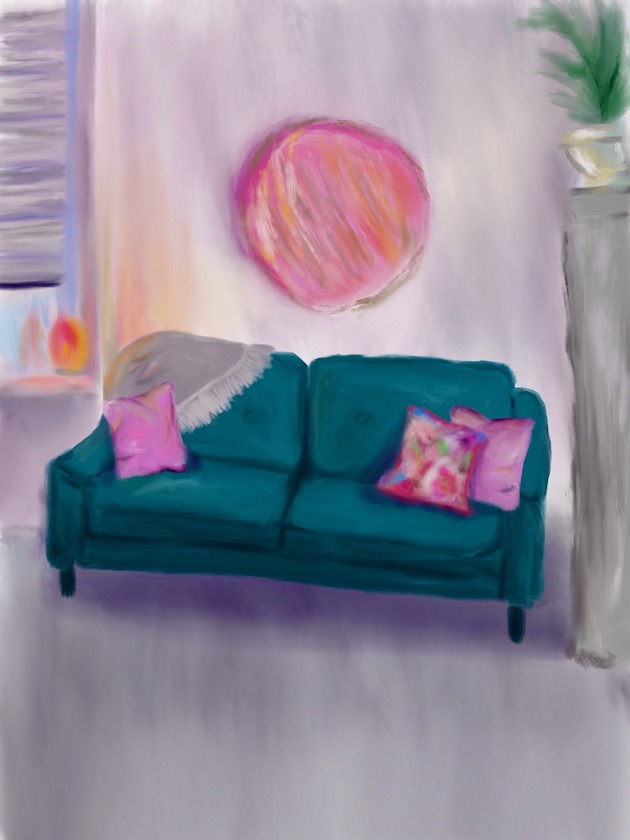
5 Tips To Turn Valentine’s Day Into Self Love Day
Do you hate Valentine’s Day? I spent most of my 20s dreading this holiday. And over the years, I have developed methods to not only
But sometimes, your anxiety gets ahead of itself, and can create more harm than good in your life if you don’t know how to manage it.
Knowing when your anxiety isn’t serving you and how to let it go is a skill that can be learned, and getting therapy for your anxiety can help you do just that.
I believe strongly in the mind-body-spirit connection, and combine a psychodynamic approach with CBT (cognitive behavioral therapy). This means you will gain a deeper understanding of why you react to situations a certain way while also gaining practical tools and insights to better cope with your anxiety.

Anxiety wreaks havoc on your self-worth and makes you feel...

Body-focused compulsions like skin picking or hair pulling
Panic attacks and trouble breathing
Body tension, aches, TMJ
Racing heart and trembling
Nausea or dizziness
Trouble sleeping
Stomach pain

Intense fears or phobias (around flying, bugs, etc.)
Jumping to the worst-case scenario
Obsessing over what you can’t control
Extreme worry about the future
Unwanted or intrusive thoughts
Thinking everyone hates you
Difficulty concentrating

Avoiding anything that makes you feel uncomfortable
Not having the confidence to voice your needs
Feeling dysregulated and out of control
Feeling overwhelmed by emotion
Tearfulness and not knowing why
Irritability and explosive reactions
Difficulty relaxing

Anxiety is more than just what’s happening in your mind – it can be a full-bodied experience,
In fact, as you’re reading this, take a moment to notice any tightness in your body. Relax your shoulders. Release tension in your jaw. Take a deep breath, and exhale slowly.
Taking a deep breath isn’t going to solve all of your problems. But learning how to take control of your anxiety so it stops controlling you will help you make decisions more easily, form closer relationships, and feel more confident.
Therapy isn’t magic – it’s science. And can help you form new, more positive pathways in your brain, so that in the future, you’re better able to handle whatever life throws your way.
If you’re tired of overanalyzing every decision you have to make and feel completely stuck without knowing how to get out of it – let me help. I’ll give you the tools you need to change and grow while diving deeper into why you have certain behavioral patterns.
Let’s get to know each other – learn more about me, my approach to therapy, and my values.
Frequently Asked Questions about Anxiety Therapy
Therapy gives you a safe, confidential space to talk about whatever is on your mind. Together, we can figure out how you can best cope with whatever you’re struggling with.
In our sessions, you will do more than just vent. You’re going to find new ways of thinking about your situation and managing your emotions.
What I’ll also say is that sometimes, you may look forward to going to therapy, other times you might dread it. Sometimes you might feel really good after a session, and other times you might feel exhausted or really sad.
There may be days where you have a ton to talk about, and other days where you feel like there isn’t much to say.
Some people find it helpful to jot down notes throughout the week so they remember what they want to bring up. But even on days where you have no agenda, your session can be as fruitful as any other.
Therapy can dredge up a lot of buried feelings, and sorting them all out is difficult, and takes time. But the great thing about therapy is aren’t doing it alone.
Our first session is a little bit like a warm up. I’ll send some virtual paperwork for you to complete in advance of our first session, which includes a questionnaire for you to fill out.
When we meet, we will review that information and anything else you want me to know. My goal for our first session is to understand what’s troubling you, why you’re seeking therapy, and get an understanding of what you’d like to accomplish during our time together.
For you, it is a great opportunity to ask any questions and see if you feel comfortable working together.
Good question! I always say – go with your gut. I recommend you check out my About Page and My Blog to see if what I have to say resonates.
You can also fill out the form below to schedule a consult call. If I don’t think I can help you with what you’re going through, I will let you know, and provide a referral for someone who is more aligned with your needs.
This is a great question. Much of this depends on why you are in therapy, how motivated you are to make changes in your life, along with your personal values, preferences, and culture.
Luckily, there are tons of studies on psychotherapy, and about 80% of people who go to therapy experience benefits.
Finding the right therapist and building a trusting relationship is a very important part of the process. So if you feel safe enough to express yourself, that’s a good sign.
I encourage you to be as open and honest as possible so I can serve you as best as I can.
And if you decide to give it a try, pay attention to what is happening outside of your therapy sessions.
Ask yourself, are you:
It depends on why you’re in therapy and what you’re hoping to get out of it.
Many people feel relief after the first session. And oftentimes you’ll make some progress in 6- 12 weeks.
If you’re coming in because of a crisis or life transition, therapy can last around 6 months to a year.
If you’re looking to address more deeply rooted patterns of behavior, therapy might last longer.
I have found that many of the people I work with deeply value having the time and space address their emotional health. As you start to feel better, we can assess where you are with your goals, see if any new issues have popped up that may be worth addressing, or if it’s time to end therapy.
My door is always open – even if we terminate, you are welcome to reach out at any time to check in.








Don’t wait for therapy to start to begin working on yourself. Read the posts below to gain deeper insight into your patterns.

Do you hate Valentine’s Day? I spent most of my 20s dreading this holiday. And over the years, I have developed methods to not only

Self-Esteem vs. confidence: they may seem like synonyms, right? And in some ways, they are similar concepts. However, if you tend to put yourself down

Learning how to be okay with yourself might not seem like a super positive approach to improving your mental health at first glance. But for
Paige Rechtman, LMHC © 2024
Get the most out of your journaling with my free guide + 30 reflective prompts.
I’ll never spam you. I promise.